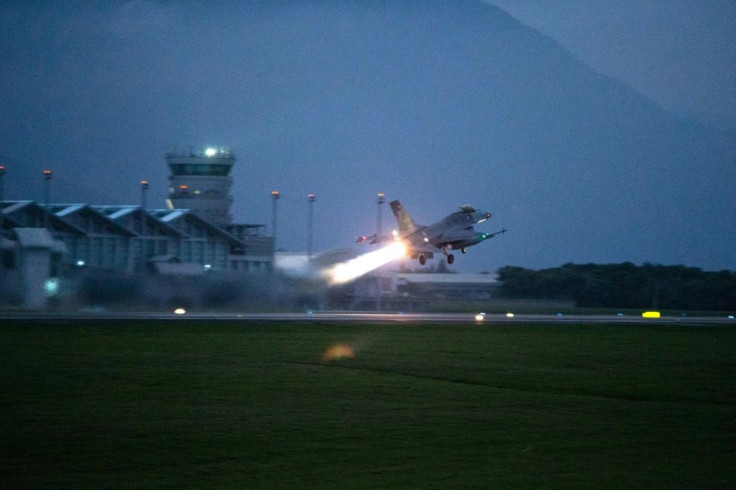Taiwan To Buy Hi-Tech Reconnaissance Pods From US To Keep Track Of Chinese Navy
KEY POINTS
- Recce pods are said to increase the military's intelligence-gathering capability
- The U.S. has approved the sale of rocket launchers, sensors, and artillery to Taiwan
- This comes as Taiwan faces increased incursions by Chinese warplanes
Taiwan signed a $343 million deal with the United States to buy hi-tech airborne reconnaissance pods, which will aid its Air Force in stepping up surveillance of the Chinese Navy in its backyard.
Taiwan's Ministry of National Defense (MND) said the system will be deployed in Hualien County, eastern Taiwan, by March 15, 2029, reported Focus Taiwan.
The agreement was signed between Taiwan's Defense Mission in the U.S. and the American Institute in Taiwan (AIT), which handles U.S. relations with Taiwan in the absence of formal diplomatic ties.
Though ministry merely said they are buying "latest generation airborne reconnaissance pods," the Focus Taiwan report added that the package includes six MS-110 Recce Pods for the fleet of F-16 jets that the U.S. would supply.
The news outlet also quoted a senior analyst who said the MS-110 Recce Pods are "more advanced than the widely deployed DB-110 dual-band airborne reconnaissance systems for long-range imagery."
"The new system allows rapid exploitation of multispectral imagery, via high-speed near-real-time data links, and can greatly increase the military's capabilities in terms of intelligence gathering," Su Tzu-yun a senior analyst at the Institute for National Defense and Security Research, told Focus Taiwan.
Taiwan's bid to boost defense capacity comes in the backdrop of increasing Chinese incursions in the last several months. In April, 25 PLA aircraft, including fighters and nuclear-capable bombers, entered Taiwan’s air defense identification zone in a single day.
Last October, the U.S. approved the sale of weapons to Taiwan, which included rocket launchers, sensors, and artillery. The $1.8 billion package covers 135 precision-guided cruise missiles, mobile light rocket launchers, besides air reconnaissance pods.
In June, Taiwan's MND announced it was purchasing from the U.S. Lockheed Martin M142 High Mobility Artillery Rocket System (HIMARS) launchers and Boeing Harpoon Coastal Defense Systems (HCDSs). However, the MND did not make the contents of the contract public.
China, which considers Taiwan as a renegade province, had often protested the arms sale. Beijing had earlier threatened to put sanctions on Lockheed Martin for its involvement in a $620 million upgrade package for Taiwan's existing Patriot missiles.
Chinese foreign ministry spokesman Zhao Lijian had then called on the United States to stop selling weapons to Taiwan to “avoid further harming Sino-U.S. ties and peace and stability in the Taiwan Strait”.
“To safeguard the country’s interests, China has decided to take necessary steps, and put sanctions on the main contractor for this sale, Lockheed Martin,” Zhao warned.

© Copyright IBTimes 2025. All rights reserved.





















